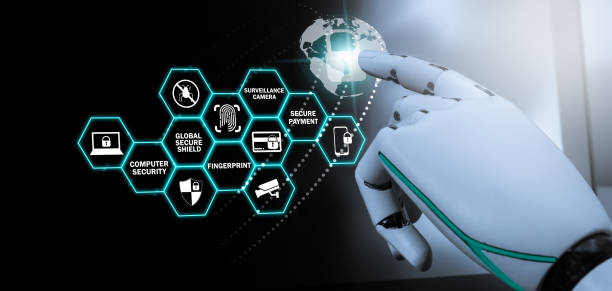Introduction
Artificial Intelligence (AI) and robotics have brought remarkable advancements to various industries, revolutionizing healthcare, manufacturing, finance, and even our daily lives. However, as AI-powered robots become more intelligent and autonomous, they also raise complex ethical challenges. Issues such as job displacement, privacy concerns, bias in AI decision-making, and the potential misuse of autonomous systems must be addressed. Balancing technological innovation with ethical responsibility is essential to ensure AI robotics serves humanity positively.
1. Job Displacement and Workforce Transformation
One of the most debated ethical challenges in AI robotics is the impact on employment. As robots automate repetitive and manual tasks, many jobs are at risk of being replaced.
- Manufacturing and Retail: Automated robots are replacing human workers in assembly lines, warehouses, and even customer service roles.
- Transportation: The rise of self-driving cars and autonomous delivery robots threatens jobs in logistics and transportation industries.
However, AI robotics also creates new opportunities in engineering, programming, and robot maintenance. The challenge lies in ensuring that workers are retrained and upskilled to adapt to the evolving job market. Governments and businesses must collaborate to create policies that promote workforce reskilling rather than mass unemployment.
2. Bias and Fairness in AI Decision-Making
AI-powered robots rely on machine learning algorithms, which are trained on vast amounts of data. However, if the data used contains biases, AI systems can reinforce discrimination and unfair practices.
- Hiring and Recruitment: AI-driven hiring bots may unintentionally favor certain demographics over others based on biased historical data.
- Law Enforcement: AI-powered surveillance and facial recognition systems have been criticized for racial and gender biases, leading to wrongful identifications.
To mitigate bias, AI developers must prioritize transparency and fairness in algorithm design. Ethical AI development requires diverse and representative data sets, as well as continuous monitoring to correct biases.
3. Privacy and Data Security Concerns
AI-powered robots collect and process vast amounts of data to function effectively. However, this raises significant privacy concerns:
- Home Assistants and Smart Robots: Devices like Alexa, Google Assistant, and AI-driven home robots can record conversations, leading to potential misuse of personal data.
- Surveillance and Monitoring: AI-powered robots used for security and law enforcement may infringe on personal freedoms if not regulated properly.
To protect user privacy, regulations such as the General Data Protection Regulation (GDPR) must be enforced, ensuring data collection is transparent, secure, and used responsibly.
4. Autonomous Weapons and AI in Warfare
One of the most controversial ethical challenges in AI robotics is the development of autonomous weapons. Military robots with AI capabilities can make battlefield decisions without human intervention, raising serious moral concerns:
- Lack of Human Control: Autonomous weapons may act unpredictably, increasing the risk of unintended harm.
- Ethical Dilemmas: Delegating life-and-death decisions to machines raises questions about accountability and moral responsibility.
International agreements and regulations must be established to prevent the misuse of AI in warfare and ensure that human oversight remains a fundamental requirement.
5. Human-Robot Relationships and Ethical Boundaries
As humanoid robots become more lifelike, ethical questions arise about human-robot relationships:
- Emotional Attachment: People may develop emotional bonds with robots, leading to ethical concerns about manipulation and dependency.
- AI in Caregiving: Robots are increasingly used to care for the elderly and children. While they provide companionship, they should not replace human connections entirely.
Ethical guidelines should define clear boundaries on how robots interact with humans, ensuring they complement human relationships rather than replace them.
Conclusion
AI robotics holds immense potential to improve lives, drive efficiency, and solve global challenges. However, ethical concerns must be addressed to ensure responsible innovation. Policymakers, developers, and society must work together to create regulations that promote fairness, privacy, and accountability. By balancing technological advancement with ethical responsibility, we can ensure that AI-powered robots serve humanity in a beneficial and sustainable way.

